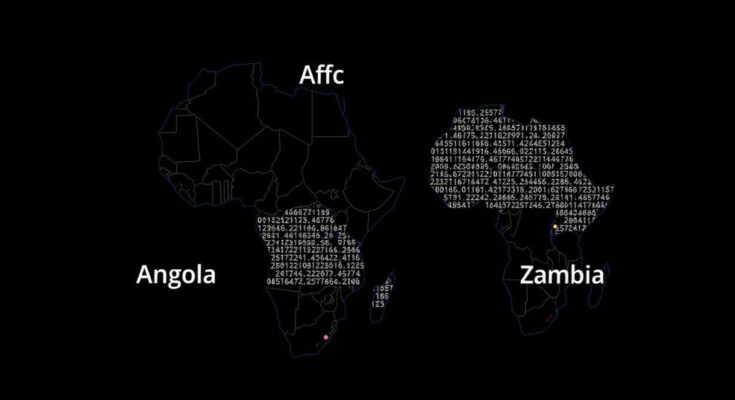The Africa Finance Corporation has signed agreements with Angola and Zambia to advance the Zambia Lobito Rail Project, enhancing trade routes and economic benefits for both countries. This new rail corridor aims to connect key mining regions to the Port of Lobito, significantly improving import and export efficiency. The project is expected to generate substantial economic benefits and create jobs while ensuring adherence to international environmental standards.
The Africa Finance Corporation (AFC) has formalized important concession agreements with both the Angolan and Zambian governments, setting in motion the financing, construction, ownership, and operation of the Zambia Lobito Rail Project. This significant rail corridor aims to provide Zambia and the Democratic Republic of Congo (DRC) with a strategic alternative route to global export markets. This project will establish the most direct path for exports and imports, effectively connecting key mining areas, agricultural hubs, and businesses within Zambia and the DRC to the Port of Lobito. The rail corridor is expected to notably enhance cargo movement from the Copperbelt and Northwestern Provinces, facilitating better trade access to Western markets. The concession agreements were ceremonially signed on 24 September during an event hosted by U.S. Secretary of State Antony J. Blinken and representatives from the Biden Administration’s G-7 Partnership for Global Infrastructure and Investment, coinciding with the 79th United Nations General Assembly (UNGA 79). This watershed moment enables the AFC to lead and finalize the railway’s development. Last year, the AFC was appointed as the primary developer for this project, working in conjunction with the U.S. Government, the European Union, the African Development Bank, and the governments of Angola, DRC, and Zambia. The project itself entails constructing an approximately 800-kilometer greenfield rail line that will link the existing Zambia Railways Line in Chingola, Zambia, with the Benguela rail line in Luacano, Angola. Upon completion, this corridor is forecasted to promote efficient goods movement and stimulate investments in areas such as agriculture, health, digital infrastructure, mining, and electricity access, all along the rail’s trajectory. In parallel with signing the concession agreements, the AFC has also secured a $2 million grant from the United States Trade and Development Agency (USTDA), aimed at advancing the environmental and social studies pertinent to the project. This grant will support comprehensive Environmental and Social Impact Assessments (ESIA), ensuring that the Zambia Lobito Rail Project aligns with recognized international best practices and environmental standards. “AFC will play the pivotal role of lead developer on the rail project which not only offers an efficient evacuation route for minerals and metals from the region but helps establish a trade corridor across Africa,” the Corporation stated. The socio-economic implications of the Lobito corridor are anticipated to be profound, with economic projections indicating a benefit of approximately $3 billion across Angola and Zambia. Additionally, the project is expected to decrease emissions by roughly 300,000 tons annually and generate over 1,250 jobs in both construction and operational phases. Angola’s Minister of Transport, Ricardo Viegas d’Abreu, expressed enthusiasm about the partnership, stating, “We are pleased to partner with Africa Finance Corporation on this transformative project which will deepen our nation’s role as a regional logistics hub.” Similarly, Zambia’s Minister of Transport, Frank Tayali, acknowledged the project as a critical milestone in modernizing infrastructure and enhancing national competitiveness. Samaila Zubairu, President and CEO of the AFC, emphasized the transformative potential of the project, considering it a major catalyst for trade and socio-economic growth in the region. He remarked, “AFC is proud to partner with the governments of Angola and Zambia to deliver world-class rail infrastructure, which will accelerate industrial development in Africa.” In conclusion, the Zambia Lobito Rail Project presents a pivotal opportunity to enhance regional trade connectivity, promote sustainable economic growth, and create enduring impacts across Africa’s infrastructure landscape.
The Zambia Lobito Rail Project is an ambitious infrastructure initiative aimed at enhancing trade routes between Zambia, Angola, and the Democratic Republic of Congo (DRC). It seeks to create a rail corridor that connects these countries to international markets, improving access for key sectors such as mining and agriculture. The involvement of multiple stakeholders, including the U.S. government and various international financial institutions, underscores the project’s significance as a driver of economic development and regional integration. This rail line promises to be a crucial link in facilitating the efficient movement of goods, thereby creating economic opportunities and employment in the region.
In summary, the Zambia Lobito Rail Project represents a monumental advancement in regional infrastructure, poised to enhance trade efficiencies between Zambia and Angola while fostering significant socio-economic benefits. The collaboration with multiple governments and financial entities highlights the project’s strategic importance in promoting sustainable development in Africa, creating economic opportunities, and championing environmental compliance. As the AFC oversees the project’s execution, the anticipated outcomes indicate profound changes for trade connectivity and regional integration. The success of this initiative could set a precedent for future infrastructure projects across the continent, further facilitating economic growth and development.
Original Source: www.esi-africa.com




